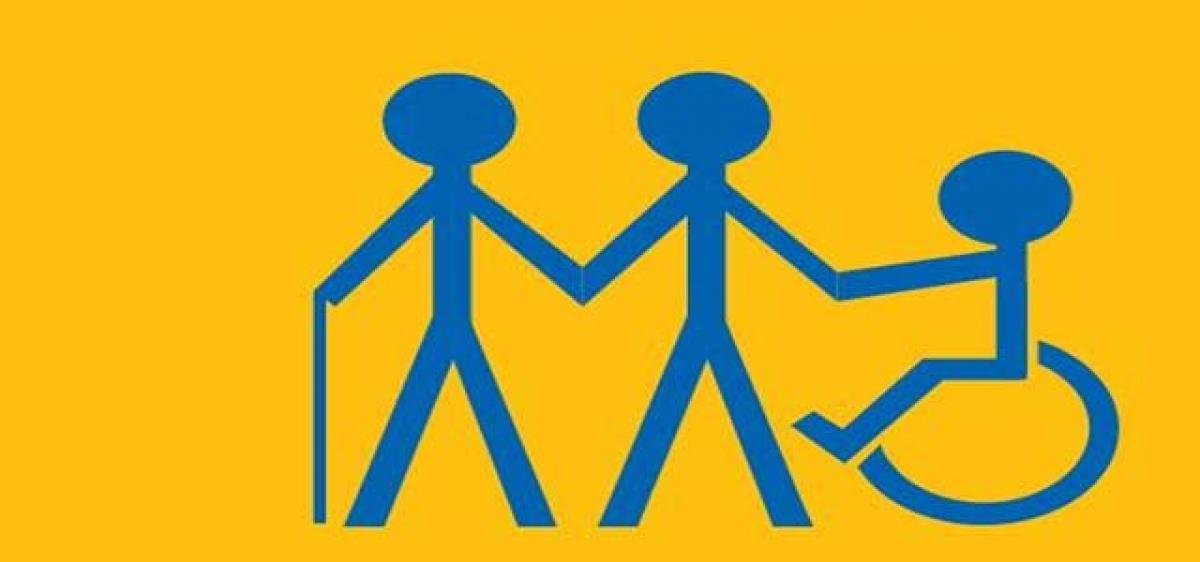Live
- Srikakulam: Cooperative Week celebrations take off
- National Library Week celebrations begin
- Bringing joy to MPP schoolchildren
- Contaminated food worth Rs 52,000 disposed
- BJP MLA warns of protest over Panchamasali reservation demand
- Sunspots and solar flares can affect Earth’s surface
- Discom staff neglect jungle clearance at poles
- Experts at COP29 urge India to tackle short-lived climate pollutants
- AGP inducts new locomotive
- Visakhapatnam: 31-year-old attacks girl for refusing his love
Just In

The Rajya Sabha on December 14 passed by voice vote the Rights of Persons with Disabilities Bill, 2014 which makes accessibility a mandatory requirement.
The Rajya Sabha on December 14 passed by voice vote the Rights of Persons with Disabilities Bill, 2014 which makes accessibility a mandatory requirement. The bill replaces the Persons with Disabilities (Equal Opportunities, Protection of Rights and Full Participation) Act, 1995. It has been brought in to comply with the United Nations Convention on Rights of Persons with Disabilities, which India signed in 2007.
The Election Commission (centre and state) has to ensure that polling stations and all electoral materials are accessible to persons with disabilities. Central and state governments have to ensure that all public documents are in accessible formats. The Disaster Management Authority (centre and state) will take necessary steps to include disabled persons in its disaster management activities for their safety and protection.
According to the Census of India, 2011 disabled persons accounted for 2.21% of India’s population. Of these, 20.3% have a movement-related disability, 18.9% are those with hearing disabilities and 18.8% with vision-related disabilities. Persons with at least 40% of a disability are entitled to certain benefits such as reservations in education and employment, preference in government schemes, etc.
The Bill confers several rights and entitlements to disabled persons. In case of mentally ill persons, district courts may award two types of guardianship. A limited guardian takes decisions jointly with the mentally ill person. A plenary guardian takes decisions on behalf of the mentally ill person, without consulting him. Violation of any provision of the Act is punishable with imprisonment up to six months, and/or fine of Rs 10,000. Subsequent violations carry a higher penalty.
Whoever intentionally insults or intimidates a person with disability, or sexually exploits a woman or child with disability, shall be punishable with imprisonment between six months to five years and fine. State governments shall notify a Sessions Court to be a Special Court, in each district, to try offences under the Act. This shall be done with the concurrence of the Chief Justices of the relevant High Courts.
Children between the ages of six to 18 years, with a benchmark disability, have the right to free education in a neighbourhood school or special school if required. Five per cent of government owned or controlled establishments shall be reserved for persons with benchmark disabilities.

© 2024 Hyderabad Media House Limited/The Hans India. All rights reserved. Powered by hocalwire.com







